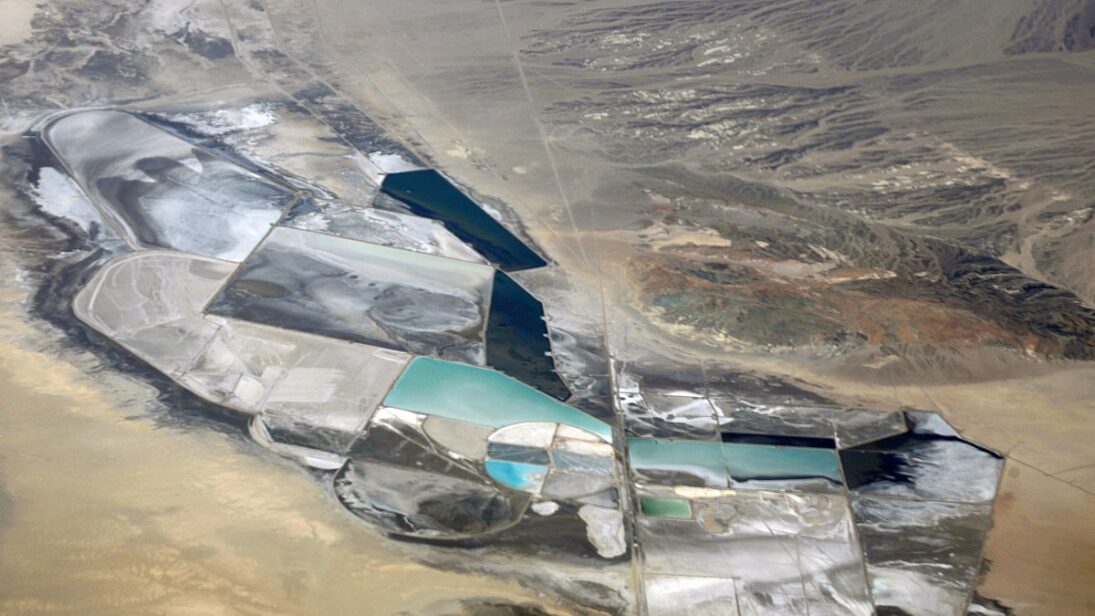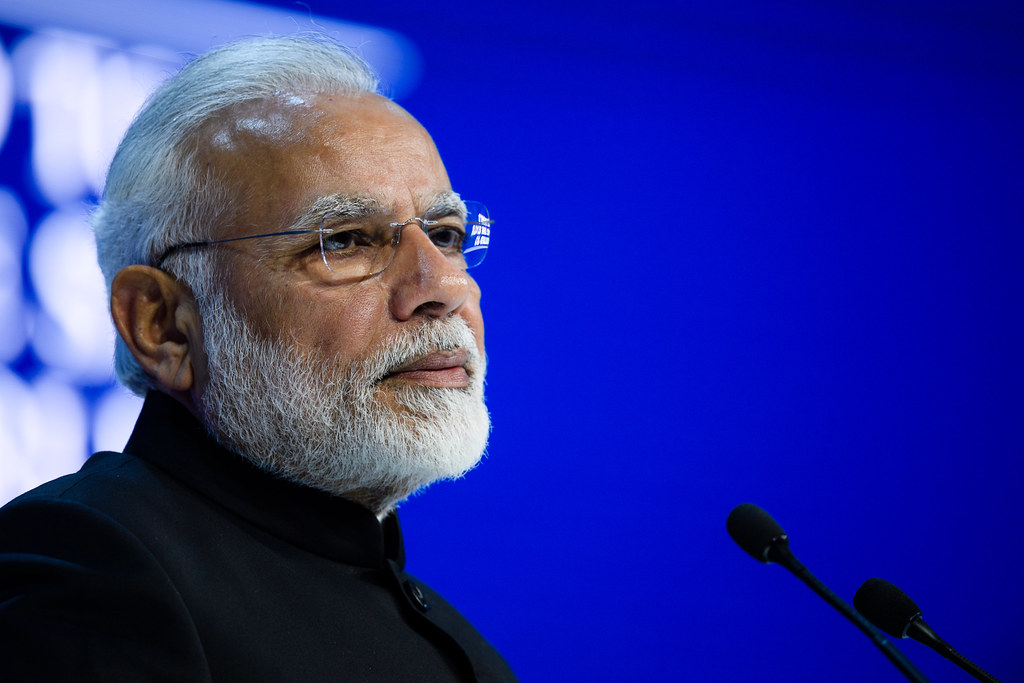
By Taha Ali
As India seeks to invest more in manufacturing in sectors with national security implications and meet its climate goals by producing electric vehicles and other sustainable solutions, access to critical minerals has become vital to its foreign policy. These ambitions necessitate securing diverse and reliable lithium supplies, an essential resource for battery production and semiconductors. Afghanistan, whose substantial lithium reserves could be key to India’s EV ambitions, can be a partner in this endeavor. A primary competitor in extraction, China’s aggressive expansion in securing global lithium supplies heightens the urgency for India to access Afghanistan’s estimated USD 1 trillion of lithium reserves.
Under Afghanistan’s Taliban regime, political instability and infrastructure challenges complicate Indian access to these reserves. However, Indian involvement would be a strategic investment that could act as a forcing function for the Taliban to improve the political and business environment in Afghanistan.
India’s Demand for Lithium: Reducing Reliance on Chinese Supply Chains
China currently controls about 60 percent of the world’s lithium processing capacity and has made significant investments in lithium mining projects in countries like Chile and Australia. India’s lithium supply chain is also heavily reliant on imports from China. Given the adversarial relationship between India and China, reliance on Chinese-controlled supply chains could lead to supply constraints and increased costs for India, especially in a crisis. Indian policy decisions in the aftermath of the 2020 Galwan Valley clash with China suggest that Delhi is increasingly linking geopolitical tensions with economic repercussions, such as India’s ban on Chinese apps and restrictions on Chinese investments.
If India can secure access to Afghan lithium, New Delhi could mitigate dependence on China and ensure an alternate lithium supply for India’s emerging EV industry and its other strategic needs for critical minerals. India projects its lithium carbonate demand to reach 56,000 metric tonnes annually by 2030 to support its EV ambitions. Lithium-ion batteries, essential for EVs, are also pivotal in energy storage systems that support renewable energy integration and stabilize the power grid. Beyond EVs, lithium’s role extends to electronics, telecommunications, and various industrial applications that are important to India’s economic growth or strategic ambitions.
Thus, lithium access is critical to Indian interests but is vulnerable to disruptions caused by geopolitical tensions, regional conflicts, or trade restrictions. These factors underscore the importance of India diversifying its sources of supply and investing in domestic lithium extraction and processing capabilities to ensure long-term energy security and technological advancement.

Why Afghanistan? India’s Motivations
While securing an alternate supply of lithium would support India’s ambitious renewable energy targets, India’s primary interest in undertaking lithium mining in Afghanistan would be strategic. New Delhi has already spent billions of dollars in Afghanistan over the past two decades to ensure it has leverage to secure its political and security interests in the country. However, China’s increasing inroads in Afghanistan in recent years, particularly Beijing’s moves to establish an economic and strategic foothold in the country through its Belt and Road Initiative, has India worried. Investing in Afghan lithium extraction would be one way for New Delhi to prevent Kabul’s overreliance on Beijing, especially a potential debt trap situation, and mitigate Chinese influence in the country. This move would also bolster India’s geopolitical influence in the broader Central Asian region.
From the Taliban’s perspective, engaging with India on lithium mining presents multiple advantages. Economically, it provides a much-needed source of revenue and investment, crucial for a country grappling with economic isolation and infrastructural challenges. By diversifying its economic partnerships beyond traditional allies like China, the Taliban can attract more international investment and expertise, potentially leading to broader economic development. Politically, forging ties with India, a major global player, could enhance the Taliban’s quest for international legitimacy. Collaborating with a democratic nation like India might help the Taliban present a more moderate image, fostering a narrative of constructive engagement with the international community. Thus, the mutual benefits of economic gain and strategic influence underpin the motivations for both India and the Taliban to consider a lithium mining partnership.
The international community is rightly reluctant to engage with the Taliban due to human rights violations and security concerns. However, a lack of engagement with the regime in Afghanistan is only worsening the humanitarian crisis while accelerating its economic collapse. Amidst this reluctance, Indian-led economic development in Afghanistan’s mining sector could present a compelling opportunity. For Afghanistan, the shift in Indian policy can potentially improve Afghanistan’s economic condition and widen the scope of accepted international engagement. For India, while the decision would likely come at the cost of condemnation from Western partners, securing its economic and regional interests in Afghanistan is important. Additionally, it would chart an independent diplomatic course that asserts India’s leadership in the Global South. By pursuing such a strategy, India would continue its multialignment policy, distinguishing its role from the West and reinforcing its commitment to a unique, balanced foreign policy path emphasizing diverse global partnerships and regional stability.
Reforming Afghanistan’s Political and Business Environment
While large-scale mining in Afghanistan would be challenging, require significant monetary investments, and ultimately depend on Kabul’s long-term stability, New Delhi could use its engagement to compel the Taliban to undertake some much-needed reforms.
Delhi could use its involvement in Afghanistan’s mining sector as leverage to push the de facto Taliban government to increase transparency and enforce international standards in line with investors’ demands. Afghanistan is currently facing an economic crisis, and the Taliban can either fail to resolve it or improve its business environment and attract investment. The security situation, human rights concerns, and political instability have increased the risk associated with investing in Afghanistan. Thus, the Taliban would benefit from India’s support to signal to other investors that Kabul is a worthy financial partner.
India can improve human rights conditions in Afghanistan while pursuing its economic objectives by including clauses in agreements that incentivize more inclusive practices and support for local NGOs. This includes ensuring transparency in government operations, budgeting, and procurement processes. Such reforms would result in less corruption and better operations overall, increasing investor trust in the Afghan economy. The partnership could lay the foundation for future international investments in infrastructure, education, and local businesses, fostering long-term growth in Afghanistan.
To effectively navigate this challenging environment in pursuit of its interests, India may need to shift from its current cautious approach to more proactive engagement with the Taliban. New Delhi would have to adopt a multifaceted approach that involves robust diplomatic dialogue with all stakeholders, including the Taliban, to ensure that economic interests are pursued without compromising broader strategic objectives or ethical commitments. Prioritizing transparency and accountability in its economic investments will be crucial for India to ensure its alignment with international norms and values. By carefully managing these strategic priorities and ethical commitments, India can maintain a coherent foreign policy while advancing its interests in Afghanistan.
source : southasianvoices
